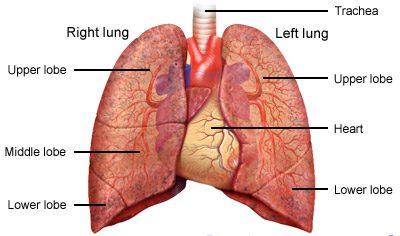
Lung cancer is one of the most prevalent and deadly forms of cancer worldwide. It is estimated that lung cancer accounts for approximately 13% of all new cancer cases and 22% of cancer-related deaths each year. The good news is that advancements in medical technology and research have led to the development of new and innovative tools for the prevention and treatment of lung cancer.
One such tool is lung cancer genetic testing, also known as molecular profiling. This type of testing involves analyzing a patient’s genetic makeup to determine if they have a specific genetic mutation that makes them more susceptible to developing lung cancer. This article will break down the benefits of lung cancer genetic testing and why it is an essential tool in the fight against this deadly disease.
1. Personalized Treatment Plans
Lung cancer genetic testing allows healthcare professionals to develop personalized treatment plans for patients based on their specific genetic mutations. For example, if a patient is found to have a mutation in the EGFR gene, they may be considered for targeted therapy drugs that specifically target that mutation. This personalized approach to treatment helps to improve the efficacy of treatment and minimize the side effects associated with traditional cancer treatments such as chemotherapy and radiation therapy.
2. Early Detection
One of the most significant benefits of lung cancer genetic testing is its ability to detect the disease at an earlier stage. This is because individuals who have a genetic predisposition to lung cancer may undergo regular screenings and surveillance to detect the disease in its early stages. Early detection of lung cancer can significantly improve treatment outcomes and increase the chances of survival.
3. Predicting Risk
Genetic testing can also help healthcare professionals predict an individual’s risk of developing lung cancer. For example, if a patient is found to have a mutation in the BRCA1 or BRCA2 genes, they may be at an increased risk of developing lung cancer, as well as other types of cancer such as breast and ovarian cancer. Armed with this information, patients can take proactive steps to reduce their risk, such as quitting smoking, making lifestyle changes, and undergoing regular screenings.
4. Clinical Trials
Another significant benefit of lung cancer genetic testing is that it can help patients gain access to cutting-edge clinical trials for new and innovative lung cancer treatments. Many clinical trials are now focusing on targeted therapies and immunotherapies that are designed to specifically target the genetic mutations associated with lung cancer. By participating in these trials, patients may have access to experimental treatments that could potentially improve their treatment outcomes.
5. Counseling and Support
Lung cancer genetic testing can also provide patients with valuable information about their disease and empower them to make informed decisions about their treatment and care. Many healthcare facilities offer genetic counseling services to help patients understand the results of their genetic testing and provide them with the support and resources they need to navigate their lung cancer journey.
6. Family Planning
For individuals who are found to have a genetic predisposition to lung cancer, genetic testing can also provide them with valuable information about their family’s risk of developing the disease. This information can be instrumental in family planning decisions, such as whether to undergo genetic testing, undergo regular screenings, or make lifestyle changes to reduce the risk of developing lung cancer.
7. Cost-Effective
While genetic testing for lung cancer may seem like an expensive endeavor, it is actually a cost-effective approach to cancer treatment in the long run. By identifying a patient’s specific genetic mutations, healthcare professionals can develop targeted treatment plans that are more effective and less likely to cause adverse side effects. This can result in lower overall healthcare costs and improved patient outcomes.
In conclusion, lung cancer genetic testing offers numerous benefits for patients at risk of developing or already diagnosed with lung cancer. From personalized treatment plans to early detection and predicting risk, genetic testing has the potential to revolutionize the way we approach the prevention and treatment of lung cancer. As our understanding of the genetic basis of lung cancer continues to evolve, genetic testing will undoubtedly play a crucial role in improving patient outcomes and advancing the field of cancer research and treatment.

















